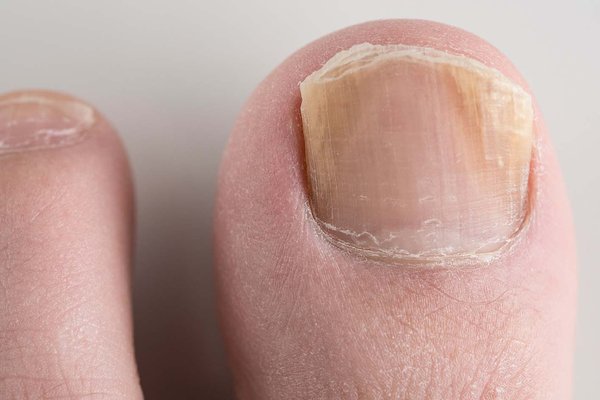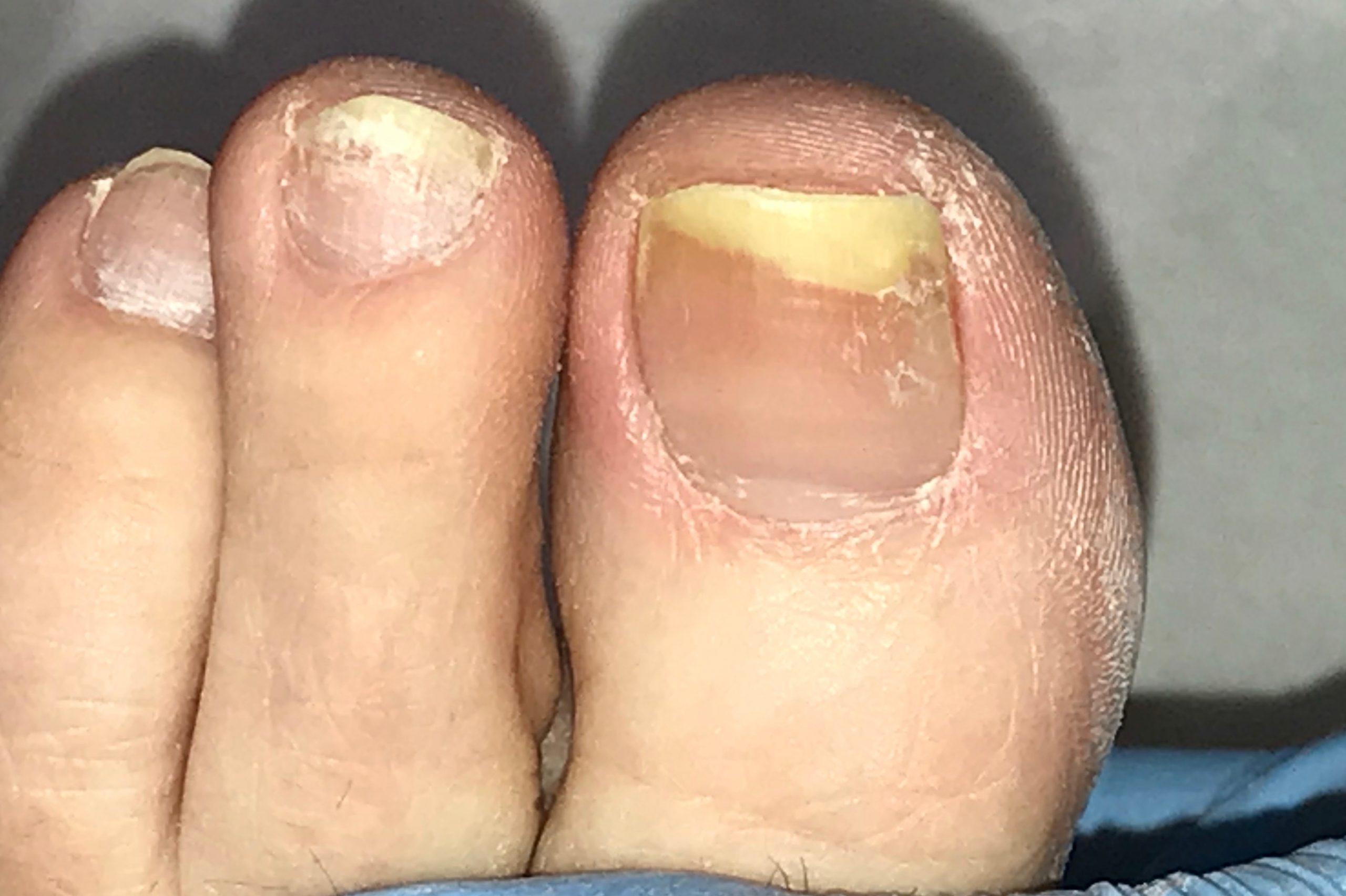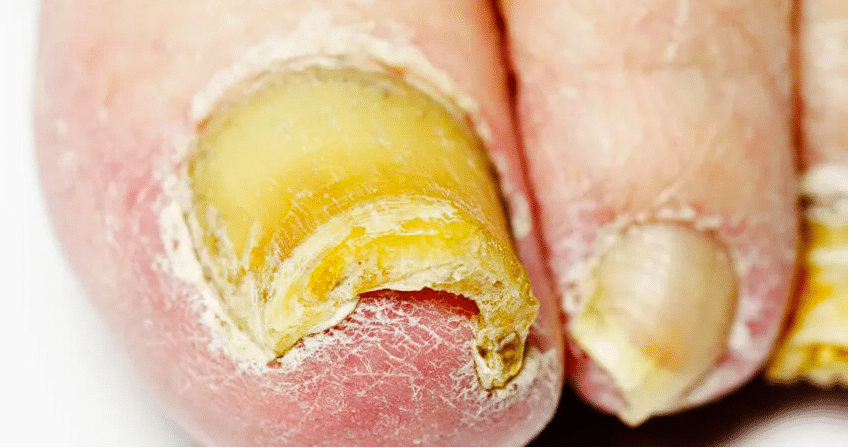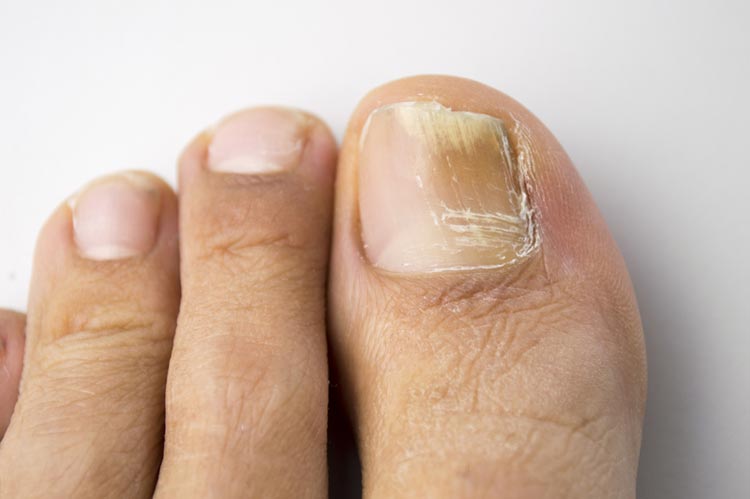Nail fungus, or onychomycosis, is a common condition that affects millions of people worldwide. Characterized by discoloration, thickening, and brittleness of the nails, it can be both unsightly and uncomfortable. While many medical treatments are available, some individuals seek natural or home-based approaches as part of their self-care routine.
One frequently discussed method involves the use of over-the-counter antiseptic mouthwash, often mentioned in home remedy discussions due to its alcohol and essential oil content. But how effective is this remedy, and what does scientific evidence actually say?
In this article, we’ll explore the basics of nail fungus, discuss the ingredients in mouthwash commonly believed to have antifungal properties, and outline safe, research-backed practices for those looking to support nail health naturally—without making unverified claims.
What Is Nail Fungus?
Nail fungus is a fungal infection of the nail bed, nail plate, or surrounding skin, most often caused by dermatophytes, a group of fungi that thrive in warm, moist environments. Other fungal organisms, such as yeasts (e.g., Candida) and nondermatophyte molds, can also cause nail infections.
According to the Centers for Disease Control and Prevention (CDC) and the American Academy of Dermatology (AAD), common signs of nail fungus include:
- Thickened or distorted nails
- White, yellow, or brown discoloration
- Crumbly or brittle nail edges
- Separation of the nail from the nail bed
- Foul odor or pain in advanced cases
Nail fungus is more common in toenails due to the dark, moist environment often created by shoes and socks, and it can take months to treat effectively, even with medical supervision.

Medical Treatments for Nail Fungus
Conventional treatments for nail fungus include:
- Topical antifungal creams or nail lacquers
- Oral antifungal medications such as terbinafine or itraconazole
- Laser therapy (an emerging but costly option)
- Nail debridement or surgical removal in severe cases
These treatments are most effective when prescribed and monitored by a healthcare provider, particularly a dermatologist or podiatrist.
The U.S. Food and Drug Administration (FDA) has approved several oral and topical medications for nail fungus, which are considered the standard of care for moderate to severe infections. However, for mild cases or early-stage infections, some individuals explore adjunctive home care.

Can Mouthwash Help with Nail Fungus?
Mouthwash, especially varieties containing alcohol, thymol, eucalyptol, and menthol, has been discussed in online forums and blogs as a possible natural approach for managing nail fungus symptoms. These ingredients are known for their antiseptic and antimicrobial properties, but there is limited clinical evidence to support mouthwash as a primary treatment for fungal infections.

What the Ingredients Do:
- Thymol: An essential oil with demonstrated antifungal and antibacterial effects in laboratory settings.
- Menthol and Eucalyptol: Both provide cooling sensations and have been studied for mild antimicrobial activity.
- Alcohol: Functions as a disinfectant and may temporarily inhibit fungal growth on surfaces.
While these ingredients have shown some antifungal activity in vitro (in lab studies), the National Institutes of Health (NIH) and Mayo Clinic emphasize that home remedies like mouthwash have not been clinically proven to cure nail fungus.
Therefore, mouthwash may serve as a hygienic support for nail care, but should not replace doctor-approved antifungal medications.

How to Use Mouthwash Safely in Nail Care
If you’re considering using mouthwash as part of your daily hygiene routine for nail care—not as a substitute for medical treatment—follow these safety guidelines:
1. Choose Alcohol-Based Mouthwash with Antiseptic Ingredients
Look for mouthwashes that contain active antiseptic compounds such as thymol or eucalyptol, along with a high percentage of ethyl alcohol.
2. Dilute with Warm Water
Mix one part mouthwash with one part warm water in a clean bowl. This can reduce the risk of skin irritation while still supporting hygiene.
3. Soak Nails for 15–20 Minutes
Soak the affected fingernails or toenails for no more than 20 minutes. Avoid soaking if you have broken skin, diabetes, or circulatory problems unless approved by a healthcare provider.
4. Dry Nails Thoroughly
After soaking, pat nails completely dry with a clean towel. Fungal organisms thrive in moisture, so keeping nails dry is essential.
5. Monitor for Irritation
If you notice redness, itching, or a burning sensation, discontinue use immediately and consult a healthcare provider.

Best Practices to Prevent Nail Fungus
Even the best remedies may fall short if good nail hygiene is not maintained. The American Podiatric Medical Association (APMA) and AAD recommend the following preventive strategies:
- Keep feet clean and dry, especially between the toes
- Trim nails straight across and disinfect tools after use
- Avoid walking barefoot in communal areas (gyms, pools, locker rooms)
- Wear breathable shoes and moisture-wicking socks
- Avoid sharing nail clippers or footwear
- Alternate shoes to allow them to air out
These habits reduce the risk of reinfection and support recovery if you’re undergoing treatment for nail fungus.
When to See a Healthcare Provider
If you suspect you have nail fungus, especially if it’s worsening or spreading, consult a dermatologist, podiatrist, or primary care provider. These professionals can:
- Confirm the diagnosis through nail clippings or cultures
- Prescribe FDA-approved antifungal treatments
- Monitor your progress and adjust treatment as needed
- Screen for underlying conditions such as diabetes or circulation issues, which may worsen fungal infections

Conclusion: Use Natural Remedies Responsibly
While mouthwash contains ingredients with antiseptic and mild antifungal properties, its effectiveness as a standalone treatment for nail fungus has not been clinically validated by large-scale, peer-reviewed studies.
That said, incorporating mouthwash soaks as part of a broader hygiene routine may support nail health when done safely and consistently. However, individuals experiencing persistent, painful, or worsening symptoms should prioritize medical care for an accurate diagnosis and effective treatment.
Always consult a licensed healthcare provider before starting any treatment—natural or pharmaceutical—to ensure safety and avoid complications.
Trusted Sources:
- Centers for Disease Control and Prevention – Fungal Nail Infections
- American Academy of Dermatology – Nail Fungus
- Mayo Clinic – Onychomycosis
- National Institutes of Health – Thymol and Antifungal Properties
- FDA – Antifungal Treatments
